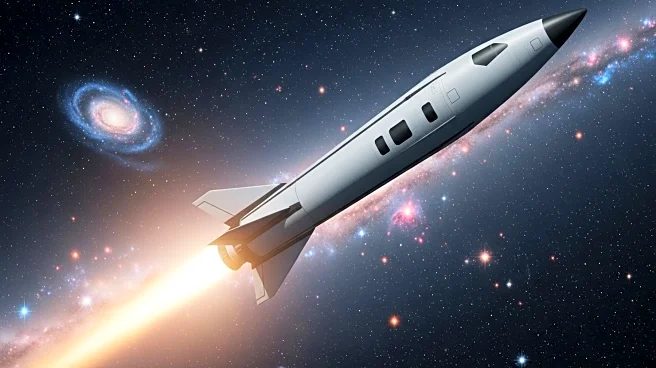What's Happening?
SpaceX and Blue Origin have achieved significant milestones in the ongoing space race. SpaceX launched 28 Starlink satellites on September 18, marking its 117th Falcon 9 flight of 2025, with over 70% dedicated to the Starlink constellation. Meanwhile, Blue Origin resumed its New Shepard suborbital flights after a year-long hiatus, successfully launching its 35th mission carrying scientific payloads. Additionally, Northrop Grumman's Cygnus XL cargo freighter delivered supplies to the International Space Station, and NASA's Parker Solar Probe completed a record-setting close approach to the Sun.
Why It's Important?
These developments highlight the rapid advancements in commercial space exploration and the increasing role of private companies in space missions. SpaceX's continued expansion of the Starlink network aims to provide global internet coverage, while Blue Origin's return to flight signifies progress in suborbital research and tourism. The successful ISS resupply mission underscores the importance of international collaboration in space operations. NASA's Parker Solar Probe's achievements contribute to our understanding of solar phenomena, which can impact Earth's space weather. These milestones reflect the growing intersection of technology, exploration, and security in space.
What's Next?
The space industry is poised for further growth, with plans for high-speed Mars-Earth communications networks and increased satellite deployments. Rocket Lab and other companies are vying to develop a Mars Telecommunications Orbiter, essential for future human missions. Taiwan is also advancing its satellite capabilities to ensure communication resilience. These initiatives indicate a continued focus on expanding space infrastructure and capabilities, with implications for global connectivity and security.









